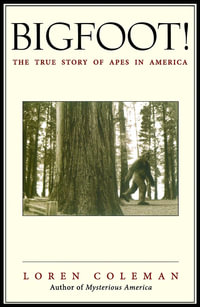
Barcoding Nature
Shifting Cultures of Taxonomy in an Age of Biodiversity Loss
By: Claire Waterton, Rebecca Ellis, Brian Wynne
eText | 18 July 2013 | Edition Number 1
At a Glance
eText
$86.89
or
Instant online reading in your Booktopia eTextbook Library *
Why choose an eTextbook?
Instant Access *
Purchase and read your book immediately
Read Aloud
Listen and follow along as Bookshelf reads to you
Study Tools
Built-in study tools like highlights and more
* eTextbooks are not downloadable to your eReader or an app and can be accessed via web browsers only. You must be connected to the internet and have no technical issues with your device or browser that could prevent the eTextbook from operating.
ISBN: 9781135202385
ISBN-10: 1135202389
Series: Genetics and Society
Published: 18th July 2013
Format: ePUB
Language: English
Number of Pages: 224
Audience: College, Tertiary and University
Publisher: Taylor & Francis
Country of Publication: GB
Edition Number: 1
You Can Find This eBook In
Other Editions and Formats

Paperback
Published: 14th October 2024
Available for Backorder. We will order this from our supplier however there isn't a current ETA.
This product is categorised by
- Non-FictionScienceBiology, Life SciencesLife Sciences in GeneralTaxonomy & Systematics
- Non-FictionEarth Sciences, Geography, Environment, PlanningThe EnvironmentApplied EcologyBiodiversity
- Non-FictionEngineering & TechnologyEnvironmental Science
- Non-FictionMedicineMedicine in GeneralMedical Sociology
- Non-FictionSociety & CultureSocial Issues & ProcessesSocial Aspects of Illness & Addictions
- Non-FictionSociology & AnthropologySociology
























